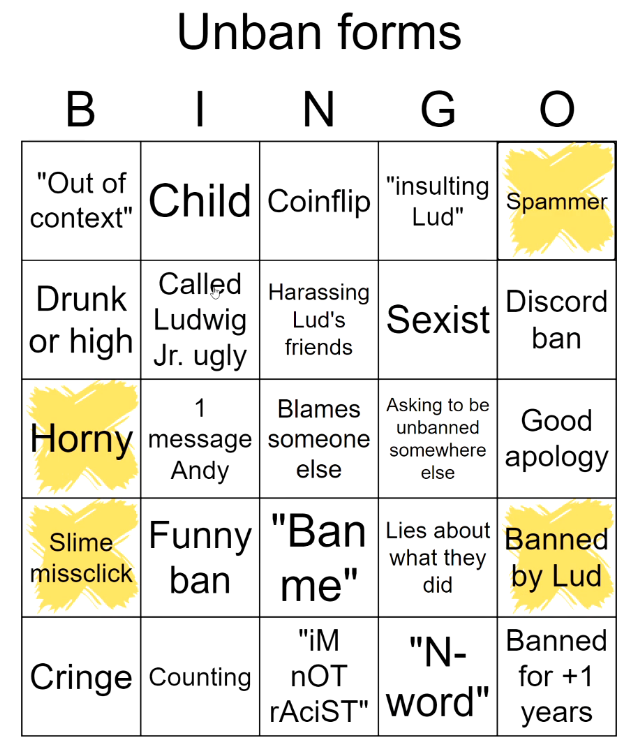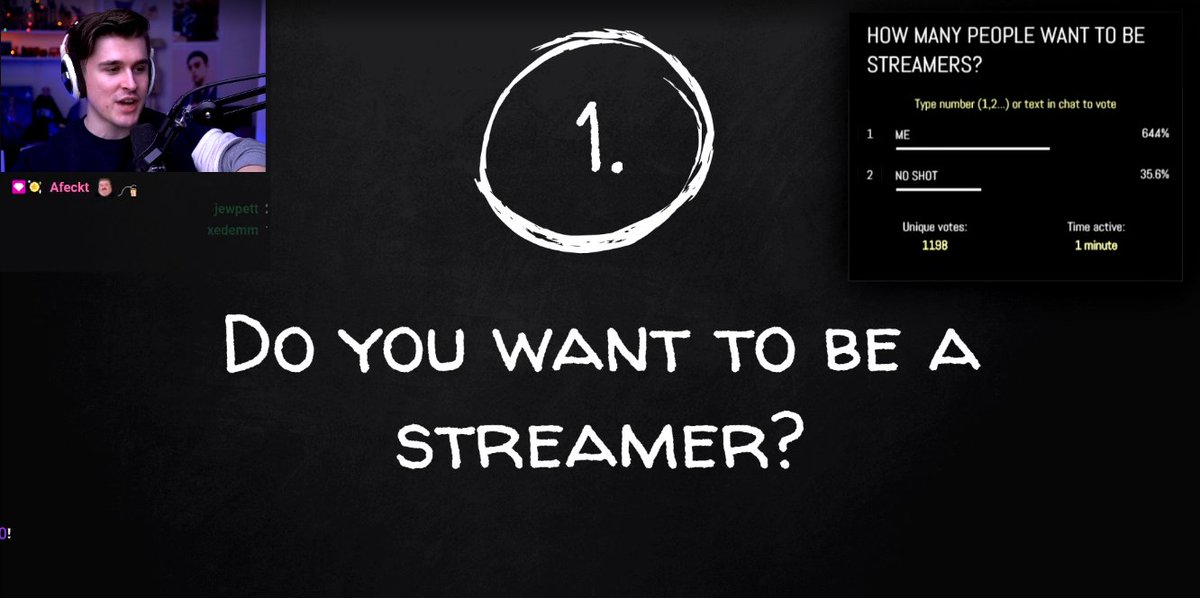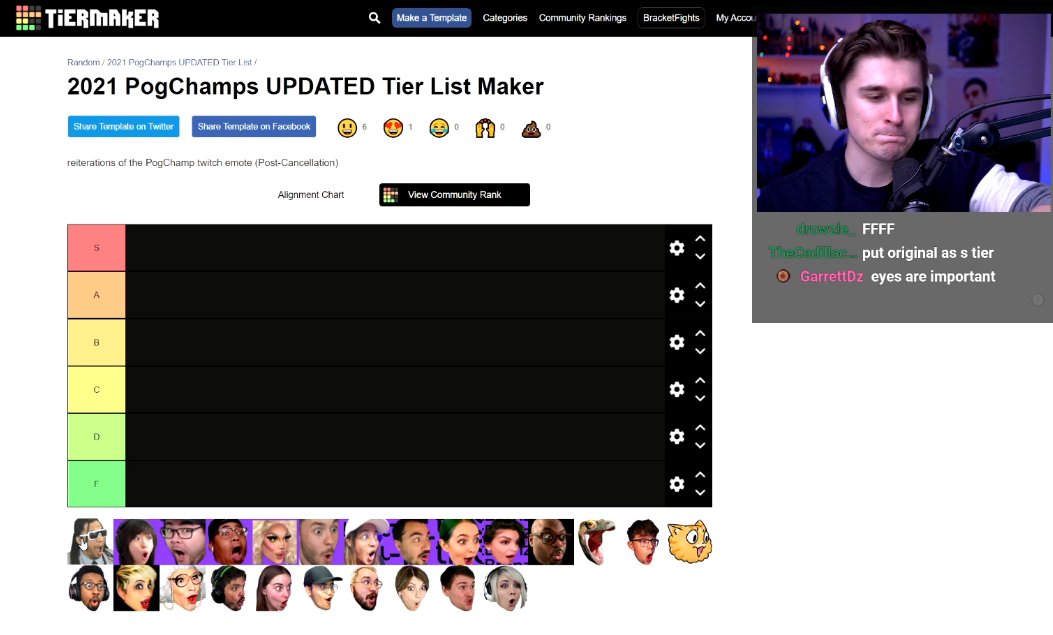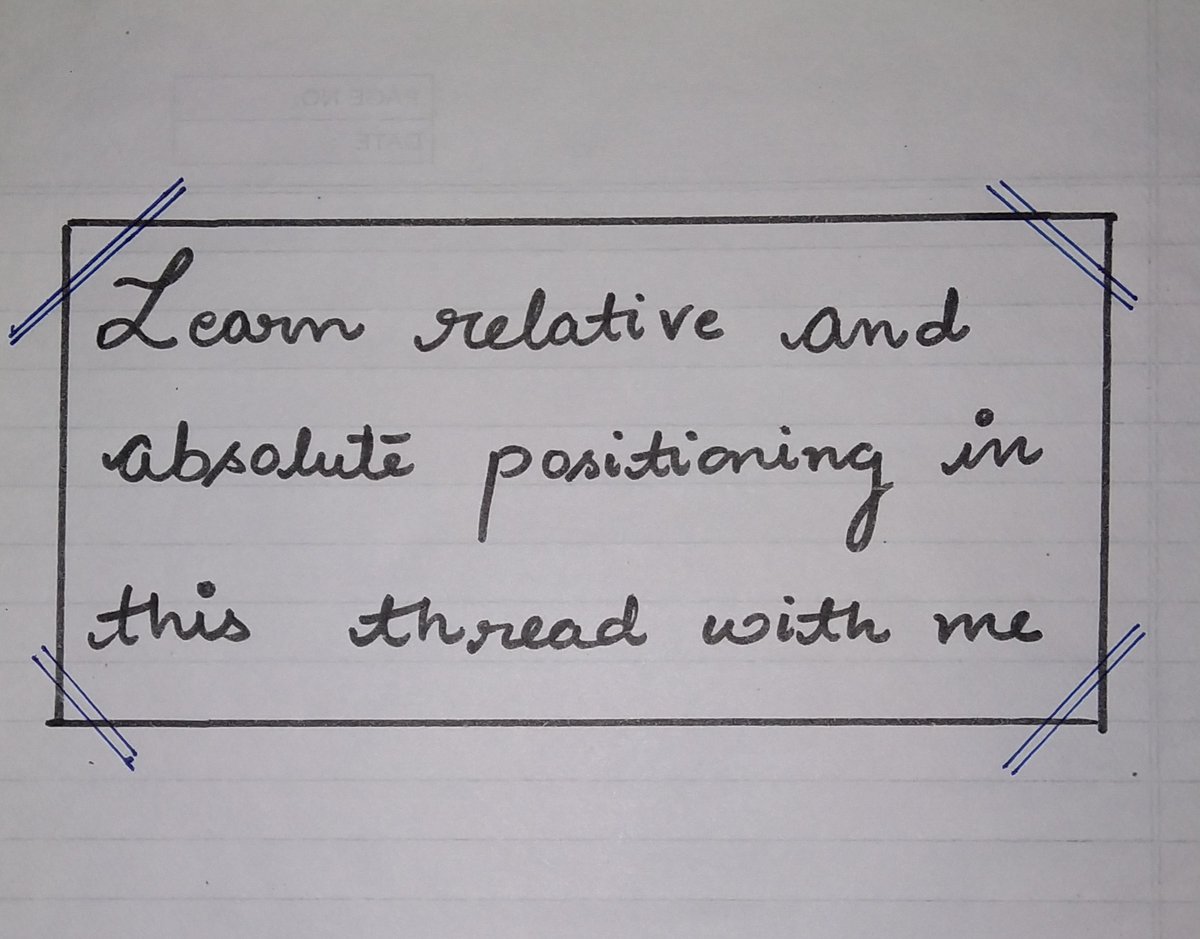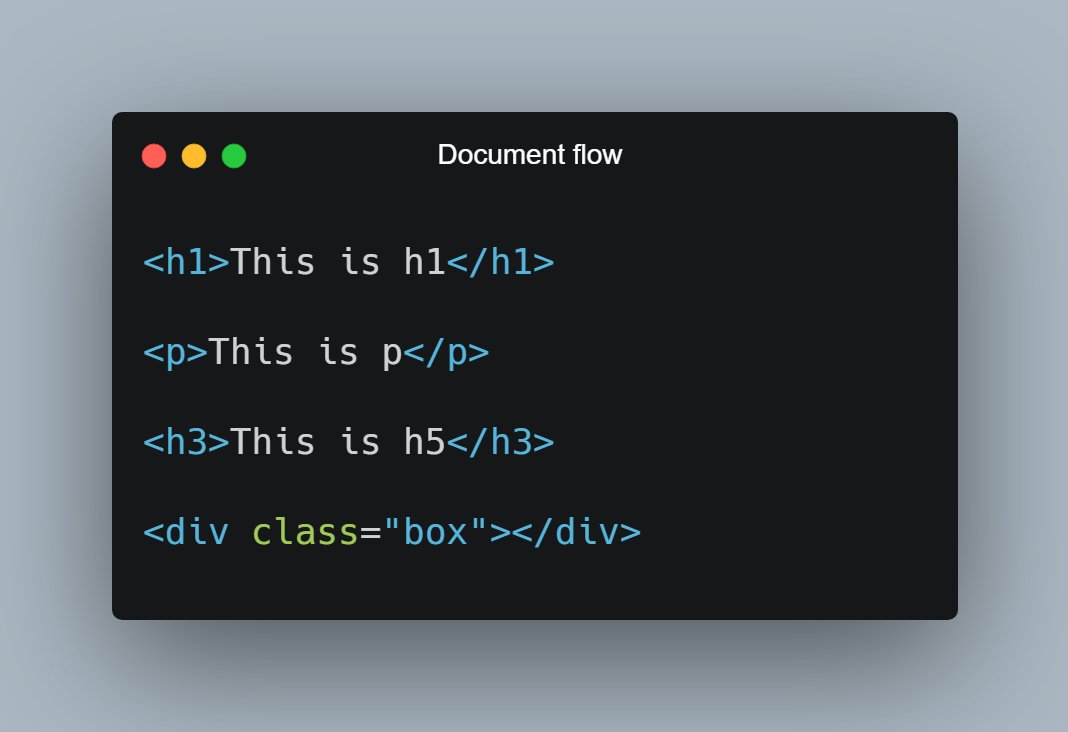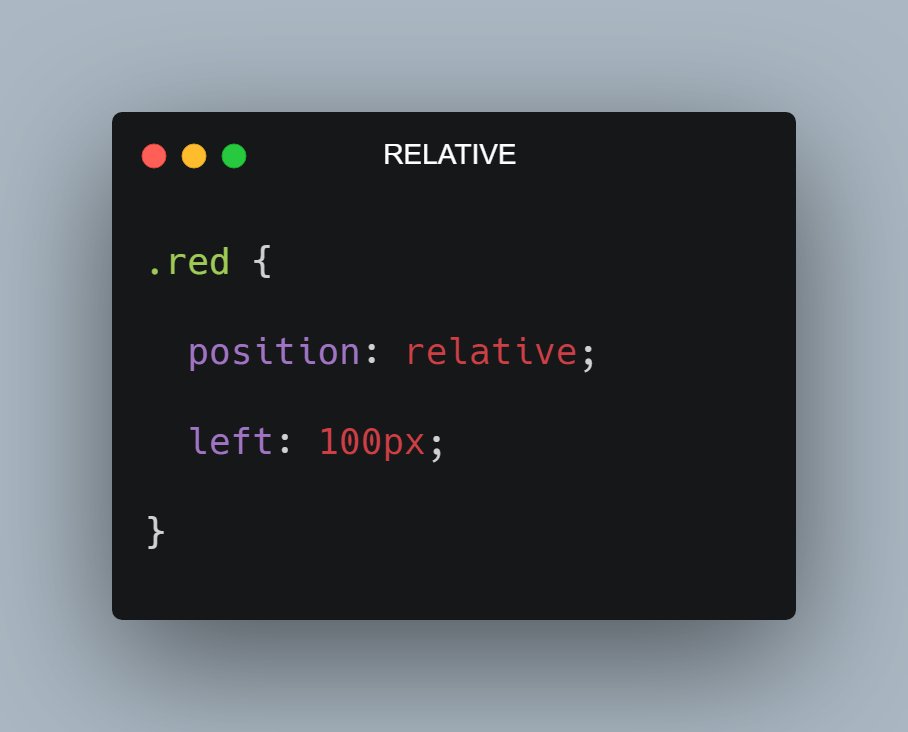I'm excited to share a new growth framework that @danhockenmaier and I have been developing (with help from the amazing @reforge crew)
I've been finding myself coming back to this framework often when talking to founders about growth.
Thread
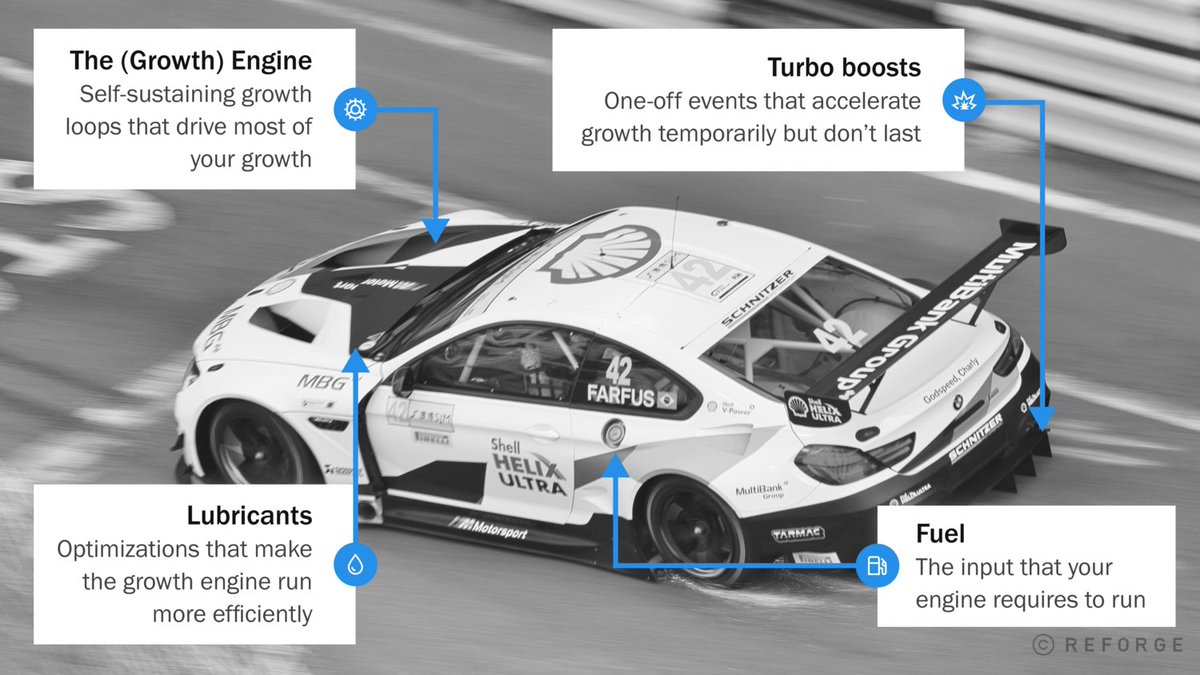
2. 💥 Turbo boosts: One-off events that accelerate growth temporarily but don’t last (e.g. PR, events, Super Bowl ads)
4. ⛽ Fuel: The input that your engine requires to run (e.g. capital, content, users).
Companies grow primarily through four possible Growth Engines:
• Performance marketing: FB, AdWords, TV, etc.
• Virality: Word-of-mouth, referrals, inviting friends, etc.
• Content: SEO, shareable videos, or newsletters, etc.
• Sales: Salespeople
• Uber/Lyft: Virality + Performance marketing
• Snapchat: Virality
• Zoom: Virality + Sales
• Slack: Virality + Sales
• Salesforce: Sales
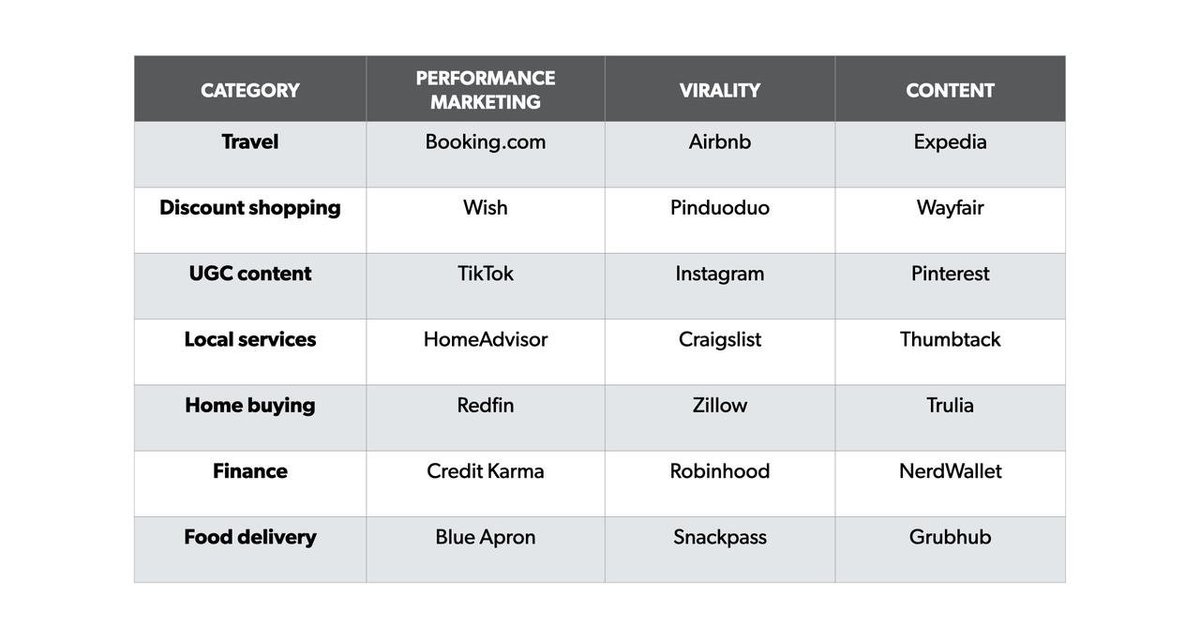
https://t.co/djWwLzhqOk
Next, we have Turbo Boosts. Similar to a turbocharger in a car, these are tactics that can accelerate growth for a period of time but don’t deliver ongoing acceleration. They include things like:
• PR
• Events
• Brand marketing campaigns
Third, we have lubricants. Lubricants don’t drive growth directly, but instead optimize the efficiency of your engine. Also, without enough lubrication, your engine will stop. There are 3 broad categories of lubricants:
• Conversion
• Activation
• Retention
https://t.co/MlrmElVjF0
Finally, we have Fuel. Without it, even the most optimized engine won’t run. The type of fuel required is specific to the type of growth engine you’re running:
• Paid marketing and sales engines primarily need capital, which can be invested in ads or salespeople
• Content engines unsurprisingly need more content, which can be used to attract users.
• Viral engines require only more users, who in turn refer additional users.
Huge shout-out to @bbalfour and @onecaseman for their help with this post, and to my brother-from-another-mother @danhockenmaier
https://t.co/ZGW1qWT5zC
More from Lenny Rachitsky
Matt Mochary has been CEO coach to @naval, the founders of OpenAI, Notion, Rippling, Robinhood, Coinbase, Reddit, Plaid, Flexport, Opendoor, partners at Sequoia, YC, Benchmark, and many others.
He also open-sourced his entire curriculum, templates and all. Here's a link 👇
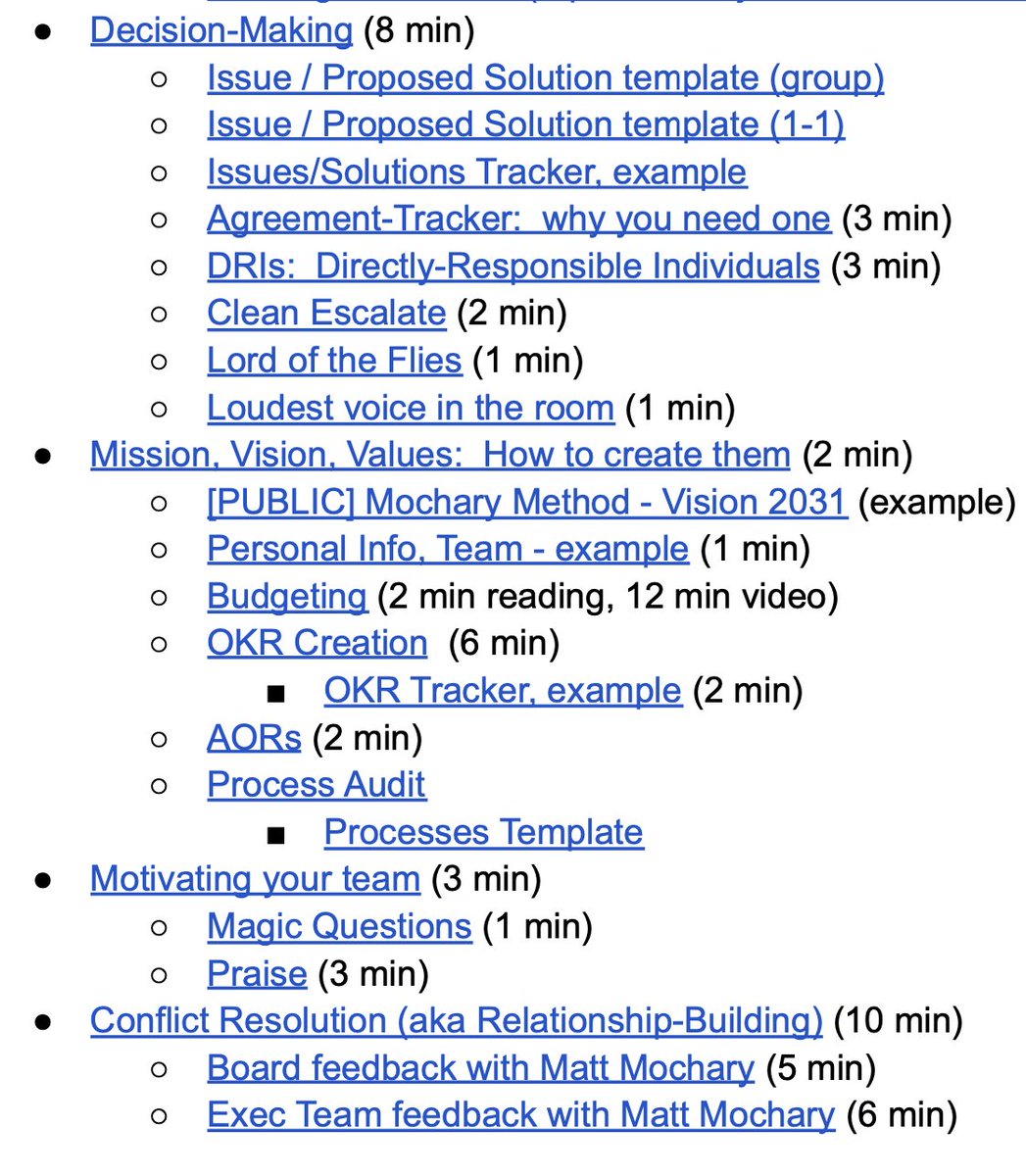
The Mochary Method Curriculum ➔ https://t.co/A8J51IzYhz
My recent conversation with @mattmochary where we talk about fear, anger, innovation, how to lay people off well, and his coaching practice ➔
Also in podcast form ➔
For more from Matt, buy this book
He also open-sourced his entire curriculum, templates and all. Here's a link 👇

The Mochary Method Curriculum ➔ https://t.co/A8J51IzYhz
My recent conversation with @mattmochary where we talk about fear, anger, innovation, how to lay people off well, and his coaching practice ➔
Also in podcast form ➔
For more from Matt, buy this book
The most sophisticated growth team no one talks about: @WishShopping
1. The #1 shopping app in 40+ countries
2. Rumored to often be the #1 spender on FB and Google
3. 2 million items sold daily
I sat down with @cplimon to learn about the notoriously secretive company. Read on 👇
1/ Your brand constraint is Wish's opportunity
Wish's superpower is leaving no room for taste or opinion. It's what happens when a machine builds a company based on data. The founder didn't plan to sell cheap goods to low-socioeconomic customers, but where the data took him.
"Until you work at a place like Wish, you don't know what data-driven is. Everyone else is data-driven when it's convenient, when it agrees with your opinions. Wish is great at ignoring their own emotions. It's data-driven with as much intellectual honesty as possible."
For example
2/ Differentiate by serving the under-served
Most of Wish’s initial sales came from places like Florida, greater LA county, and middle-America. Specifically, zip codes with 95% Spanish speakers. Later, Africa, Latin America and Eastern Europe (avg household income $18,000/year)
1. The #1 shopping app in 40+ countries
2. Rumored to often be the #1 spender on FB and Google
3. 2 million items sold daily
I sat down with @cplimon to learn about the notoriously secretive company. Read on 👇
1/ Your brand constraint is Wish's opportunity
Wish's superpower is leaving no room for taste or opinion. It's what happens when a machine builds a company based on data. The founder didn't plan to sell cheap goods to low-socioeconomic customers, but where the data took him.
"Until you work at a place like Wish, you don't know what data-driven is. Everyone else is data-driven when it's convenient, when it agrees with your opinions. Wish is great at ignoring their own emotions. It's data-driven with as much intellectual honesty as possible."
For example
cursed wish ads pic.twitter.com/eMlx4LqgKA
— big meaty claws (@leisurepIex) June 4, 2019
2/ Differentiate by serving the under-served
Most of Wish’s initial sales came from places like Florida, greater LA county, and middle-America. Specifically, zip codes with 95% Spanish speakers. Later, Africa, Latin America and Eastern Europe (avg household income $18,000/year)
More from Tech
You May Also Like
1/ Here’s a list of conversational frameworks I’ve picked up that have been helpful.
Please add your own.
2/ The Magic Question: "What would need to be true for you
3/ On evaluating where someone’s head is at regarding a topic they are being wishy-washy about or delaying.
“Gun to the head—what would you decide now?”
“Fast forward 6 months after your sabbatical--how would you decide: what criteria is most important to you?”
4/ Other Q’s re: decisions:
“Putting aside a list of pros/cons, what’s the *one* reason you’re doing this?” “Why is that the most important reason?”
“What’s end-game here?”
“What does success look like in a world where you pick that path?”
5/ When listening, after empathizing, and wanting to help them make their own decisions without imposing your world view:
“What would the best version of yourself do”?
Please add your own.
2/ The Magic Question: "What would need to be true for you
1/\u201cWhat would need to be true for you to\u2026.X\u201d
— Erik Torenberg (@eriktorenberg) December 4, 2018
Why is this the most powerful question you can ask when attempting to reach an agreement with another human being or organization?
A thread, co-written by @deanmbrody: https://t.co/Yo6jHbSit9
3/ On evaluating where someone’s head is at regarding a topic they are being wishy-washy about or delaying.
“Gun to the head—what would you decide now?”
“Fast forward 6 months after your sabbatical--how would you decide: what criteria is most important to you?”
4/ Other Q’s re: decisions:
“Putting aside a list of pros/cons, what’s the *one* reason you’re doing this?” “Why is that the most important reason?”
“What’s end-game here?”
“What does success look like in a world where you pick that path?”
5/ When listening, after empathizing, and wanting to help them make their own decisions without imposing your world view:
“What would the best version of yourself do”?








